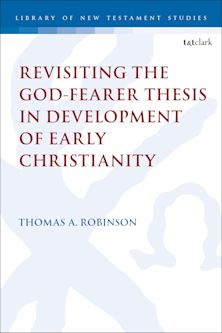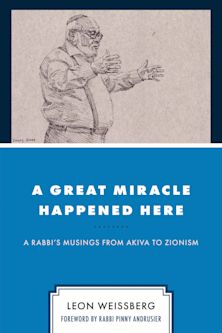Jewish Science Fiction and Fantasy through 1945
Immigrants in the Golden Age
Jewish Science Fiction and Fantasy through 1945
Immigrants in the Golden Age
This product is usually dispatched within 3 days
- Delivery and returns info
-
Free CA delivery on orders $40 or over
Description
Science fiction first emerged in the Industrial Age and continued to develop into its current form during the twentieth century. This book analyses the role Jewish writers played in the process of its creation and development. The author provides a comprehensive overview, bridging such seemingly disparate themes and figures as the ghetto legends of the golem and their influence on both Frankenstein and robots, the role of, Jewish authors and publishers in developing the first science fiction magazine in New York in the 1930s, and their later contributions to new and developing medial forms like comics and film. Drawing on the historical context and the positions Jews held in the larger cultural environment, the author illustrates how themes and tropes in science fiction and fantasy relate back to the realities of Jewish life in the face of global anti-Semitism, the struggle to assimilate in America, and the hope that was inspired by the founding of Israel.
Table of Contents
Chapter 1: Roots of Fantasy: The Monsters of Jewish Folklore
Chapter 2: Speculative Fiction in the New World
Chapter 3: The Golden Age: American Science Fiction Begins
Chapter 4: Stereotypes Proliferate: A Darkening Western Europe
Chapter 5: Eastern Europe's Social Science Fiction
Chapter 6: Kafka's Great Legacy
Chapter 7: The Old-New Land: From Zionism to Israeli Literature
Chapter 8: Fighting Hitler Onscreen: Marxes, Stooges, and More
Chapter 9: More Golden Ages: Superman, Captain America, Dr. Seuss
Conclusion
Works Cited
Index
About the Author
Product details
| Published | Jan 29 2025 |
|---|---|
| Format | Paperback |
| Edition | 1st |
| Extent | 230 |
| ISBN | 9781793637147 |
| Imprint | Lexington Books |
| Dimensions | 229 x 152 mm |
| Series | Jewish Science Fiction and Fantasy |
| Publisher | Bloomsbury Publishing |
Reviews

ONLINE RESOURCES
Bloomsbury Collections
This book is available on Bloomsbury Collections where your library has access.

































